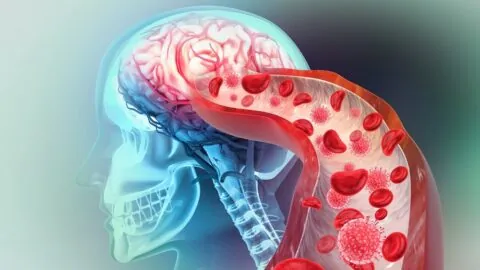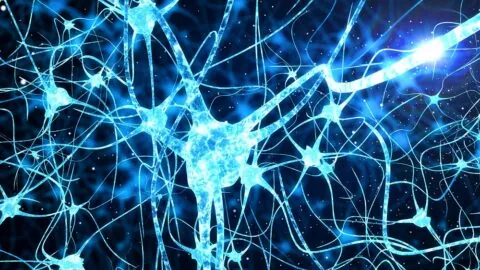October 16, 2025
Researchers have discovered that infrared lasers promote the clearance of toxic metabolites from the brains of age-accelerated mice by improving lymphatic drainage. Gunking up the works Advanced glycation end-products (AGEs), like their acronym suggests, accumulate with age. These substances, which are formed when sugars bind to other molecules without the assistance of enzymes, drive multiple...
September 16, 2025
Scientists have demonstrated that even two days on a Western-like high-fat diet reduce hippocampal glucose availability, which activates a subset of inhibitory neurons and causes memory problems in mice [1]. Is it OK to eat junk occasionally? Metabolic disease and obesity are known to harm cognitive function and have been linked to neurodegenerative diseases such...
September 08, 2025
Scientists have found a way to directly stimulate the assembly of Complex I in mitochondria, rescuing memory deficits in mouse models of Alzheimer’s and frontotemporal dementia [1]. Mitochondrial signal transducers Why We Age: Mitochondrial DysfunctionAs they age, the mitochondria in our cells lose their ability to provide cellular energy and release reactive oxygen species that...
August 26, 2025
Scientists have developed a potent diagnostic tool based on the vascular hypothesis for Alzheimer’s. It outperformed three current techniques and might offer clues to the mechanism behind the disease [1]. The blood flow hypothesis Traditionally, Alzheimer's disease has been associated with the presence of amyloid plaques and tau tangles in the brain: the amyloid cascade...
August 25, 2025
In Nature Aging, researchers have described how an increase in the iron-associated protein ferritin light chain 1 (FTL1) is related to age-related cognitive impairment. Impairment without cellular death While neuronal loss is always a concern, age-related cognitive decline has been found to be primarily driven by other factors, such as synapse function [1]. Only a...
July 10, 2025
Researchers have found that inflamed, senescent microglia prune too many synapses in the hippocampus and demonstrated that a senolytic compound can ameliorate this process in Aging Cell. Some synapse pruning is normal During brain development, the resident immune cells of the brain (microglia) prune unneeded synapses as a form of maintenance. This is normally a...






